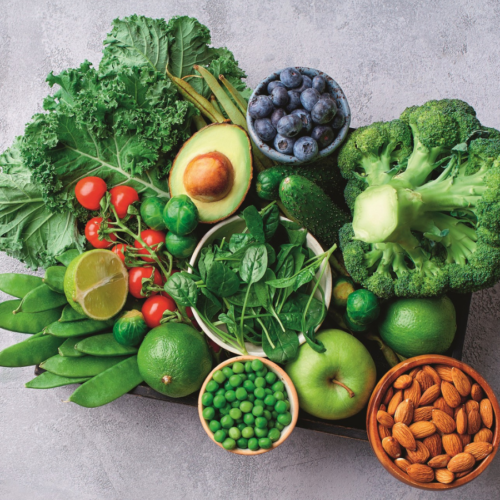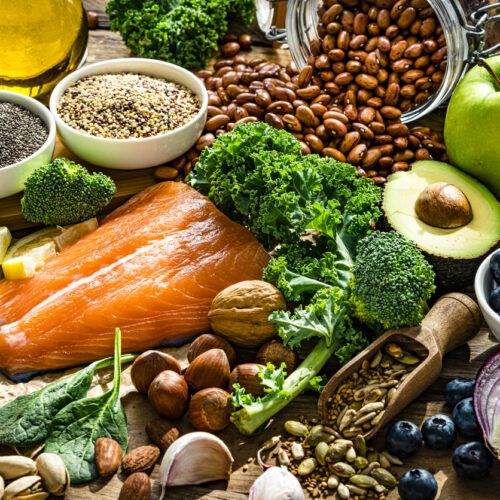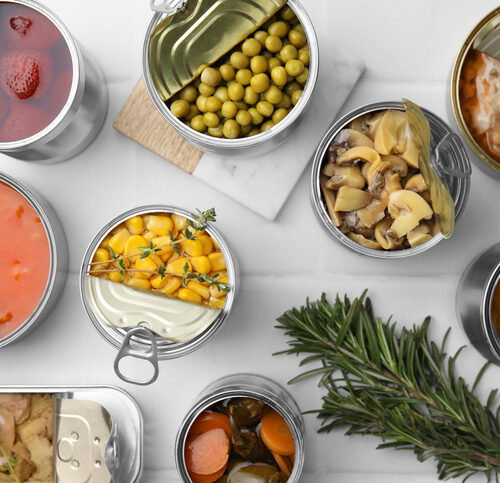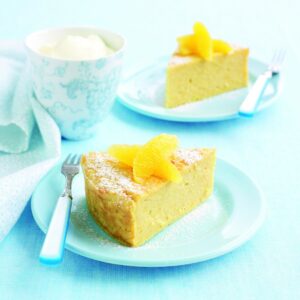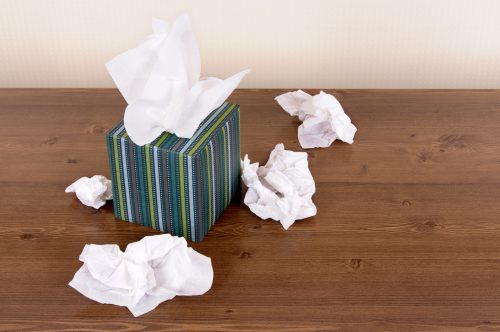
Nutritionist Rose Carr answers common questions about winter ills.
Have I got a cold or the flu? How can I tell?
The flu is more severe than a cold which is presumably why some people always insist they have the flu and not ‘just a cold’. Both conditions are caused by viruses and let’s face it, neither is pleasant.
It’s not too hard to tell the difference between a cold and the flu. With a cold you generally start with a sore throat and a few sniffles. While you can get a mild fever at the start of a cold, more often you won’t. Over the first few days the odd sneeze becomes more frequent, the runny nose more abundant, the mucus tends to gets thicker and there is often an annoying cough before symptoms finally taper off again. The whole process can take a couple of days or a couple of weeks – there is no knowing.
On the other hand, the flu is more likely to knock you over and send you to bed. The first symptom can be the chills, a headache, or an aching body. You’ll have a 38?C or more fever in the first few days at least. You may not get the full range of cold-like symptoms, but there’ll be one or two. You’re also likely to be pretty lethargic and even when you are recovering from the flu your energy levels may be sapped for a while.
Should I still go to work and ‘soldier on’, or rest up in bed?
While there are plenty of cold and flu tablets available to help suppress the symptoms, if you have the flu, you may find you can’t get out of bed, at least for a day or two while you have a high fever. Rest is advisable.
In some workplaces soldiering on is encouraged, and with a cold you usually can, but especially in the early days you need to consider how productive you will be and whether you can avoid passing it on to your workmates.
Colds and flu are most contagious in the first few days and can continue to be contagious for up to a week or so. Scrupulous hygiene is the way to prevent spreading a cold or flu virus. Wash hands regularly with soap and water and dry them well, or use a hand sanitiser. Make sure you always cover coughs and sneezes with a tissue, then bin used tissues.
Is it true you should ‘feed a cold and starve a fever’?
No. A fever speeds up the metabolism – so even though you may be resting, your body needs energy and nutrients from food to help fight the illness. When you have a cold you may find you have less appetite, especially if you are all blocked up and can’t smell your food.
What can I eat and drink to help a speedy recovery?
Once you’ve come down with a cold or flu, what you eat and drink may help you feel better, but it won’t necessarily shorten the duration.
Fluids are the most important. If you have a fever you’re more prone to dehydration and you also want to keep the lining of your nose and throat passages moist and the mucus fluid. Warm fluids – such as the traditional chicken soup or lemon and honey drink – as well as spicy foods, can all help to clear nasal passages. Herbal teas, juice, water and other soups help keep fluids up, but limit or avoid caffeinated drinks and alcohol, which can be dehydrating.
Food depends very much on what you can cope with eating, but go for nutrient-dense foods such as porridge, fruit smoothies or vegetable soup. If you can eat a full meal, all the better.
Should I go to the gym and ‘sweat it out’?
Not if you have a fever! Your pulse rate and temperature are already raised so you don’t want to increase them by exercising. Exercise is also not advised if you have chest congestion or a hacking cough.
If your cold symptoms are above the neck, exercise is fine. Researchers have found lung capacity of people with a cold is just the same as when they’re well and exercising doesn’t feel any more strenuous. You may even feel better for clearing the nasal passages, but there’s no evidence it will have any effect on the duration of the cold.
Always listen to your body and if your symptoms get worse when you exercise, give it a rest.
What about prevention – is there anything I can do?
When it comes to colds and flu, prevention is the best cure. An adequate intake of a whole range of vitamins and minerals is essential for the optimal functioning of your immune system, and the best source of that is food because you will get all the protective phytochemicals as well. A varied diet including plenty of vegetables and fruit is still your best defence.
High levels of stress and a lack of good quality sleep can also affect your immunity and make you more vulnerable to colds and flu. One of the best ways to keep stress at bay is regular exercise, which, happily, will help you sleep as well.
Should I take vitamin C, echinacea, zinc or other supplements to help me get over my cold?
The jury is out on this, but here’s what we’ve found:
Vitamin C
A few studies on marathon runners, skiers and soldiers on a sub-arctic exercise have found vitamin C can help prevent colds. Other studies have shown that if you’re not going to be subject to severe physical or cold stress, then taking vitamin C won’t have any effect on how many colds you catch. On the other hand, some studies have found taking high doses of vitamin C before the onset of a cold reduced their duration and severity. Pooling these studies, it’s estimated on average this might mean 11 days each year with a cold rather than 12 days for adults; and for under-12s who experience more colds it could mean 24 days with a cold each year rather than 28 days. In studies where high doses of vitamin C were started after cold symptoms began, there was no consistent effect on either the duration or severity of symptoms. The different effects may depend on how much vitamin C is in our usual diet, so we recommend regularly including foods rich in vitamin C such as kiwifruit, capsicum, broccoli, cauliflower, blackcurrants and citrus fruit.
Garlic
There is laboratory evidence that garlic has antibacterial and antiviral properties but there are few studies on garlic’s effect on colds. In one study, people who took a garlic supplement every day for three months had fewer colds than those taking a placebo and the duration of their colds was also less. While we can’t conclude too much from just one study, using garlic in cooking is surely good for us.
Echinacea
Preparations from some parts of this plant may help treat a cold. There’s some evidence that preparations from the aerial parts of Echinacea purpurea may be effective in the early treatment of colds for adults. Results are inconsistent but it seems if you are going to use echinacea, it is best to start as soon as you feel a cold coming on when it may help lessen the severity and duration. You could take it as a preventative, as it won’t do any harm, but no one can yet say whether or not it works.
Zinc
The jury’s still out on zinc as a cold remedy. One of the difficulties with zinc is that it has a distinct, unpleasant taste, so it is difficult to do ‘blind’ trials. If you choose to use zinc, be careful, as doses above 30mg can have adverse effects. You can get plenty of zinc in your normal diet by including foods such as seafood (especially oysters), meat and poultry, milk and dairy products, tofu, silver beet, whole grain bread and other whole grains.
Did you know?
- Research has found the flu vaccine is less efficient in older people but regular exercise can improve its effect.
- Immunity can be reduced for a while after vigorous exercise. You’re more susceptible to getting an upper respiratory tract infection after running a marathon than after going for a walk around the block.
www.healthyfood.com


